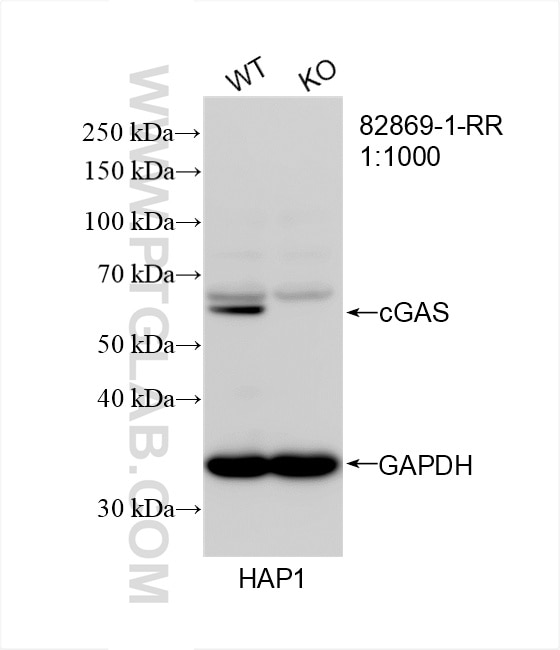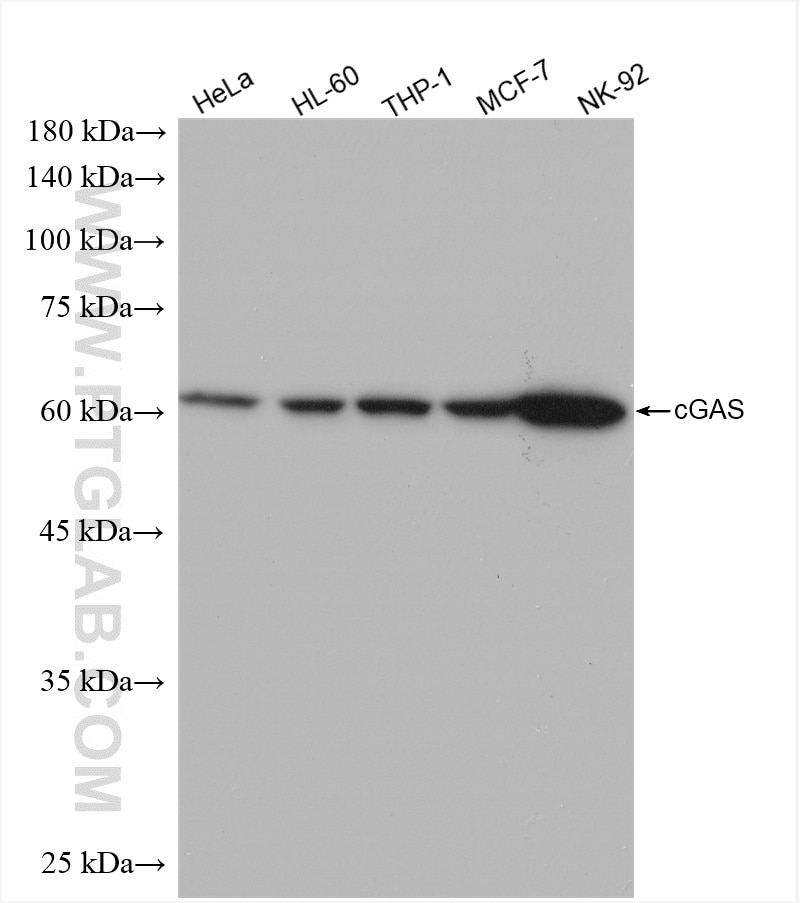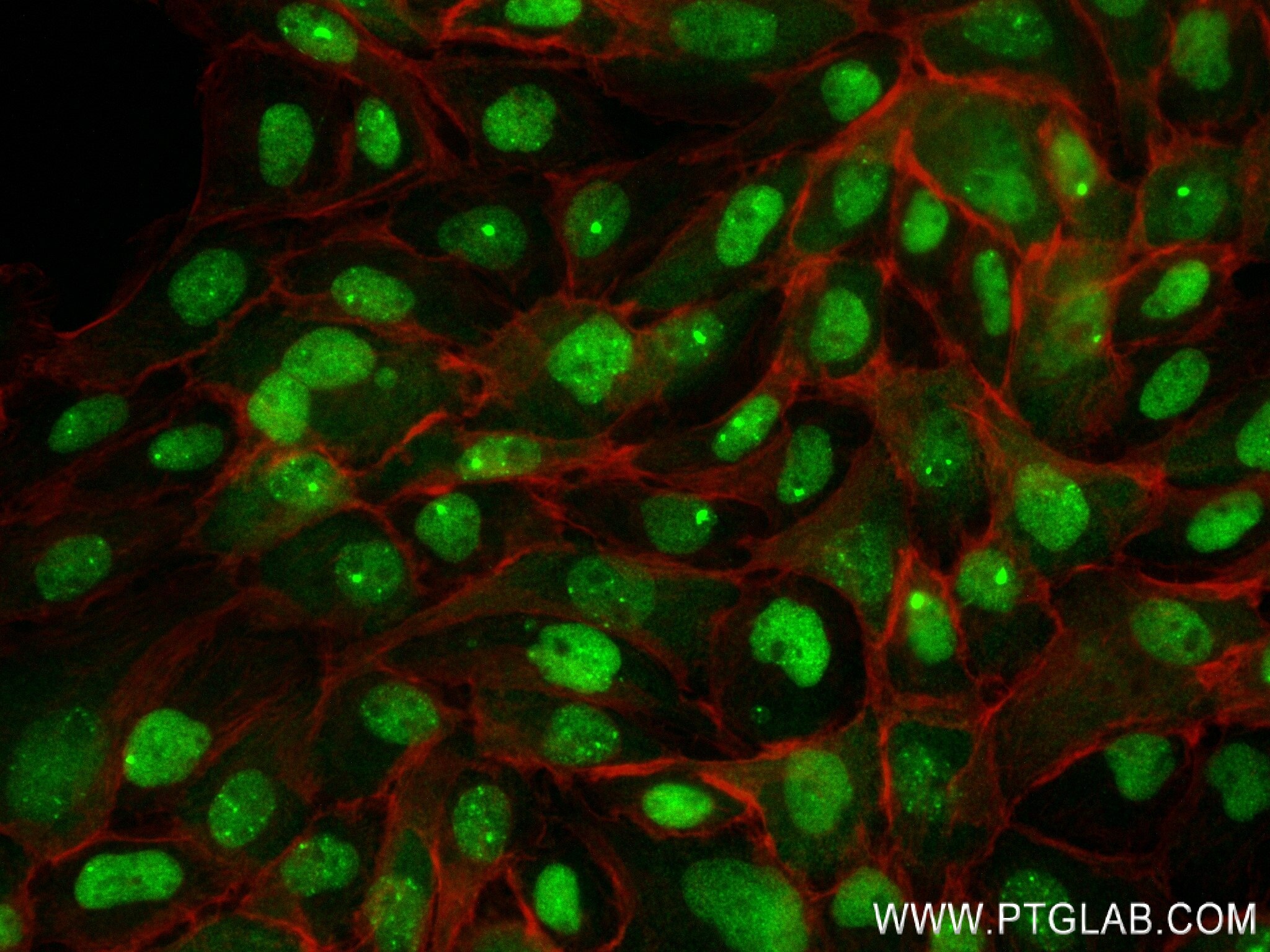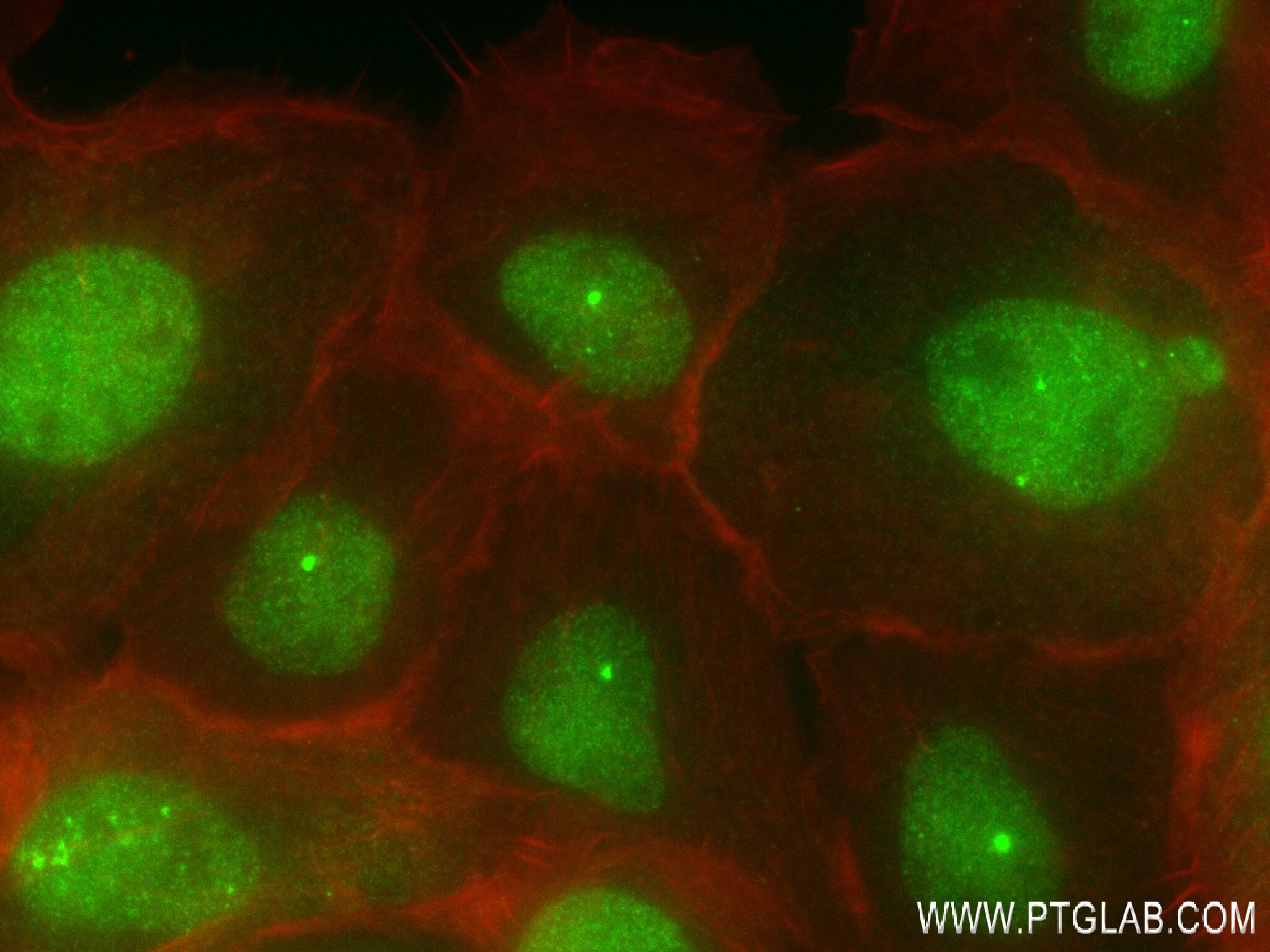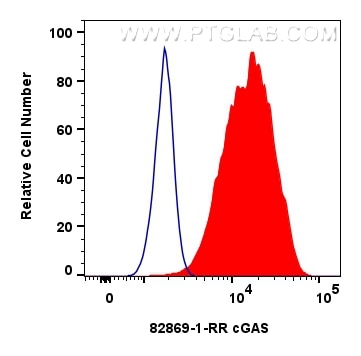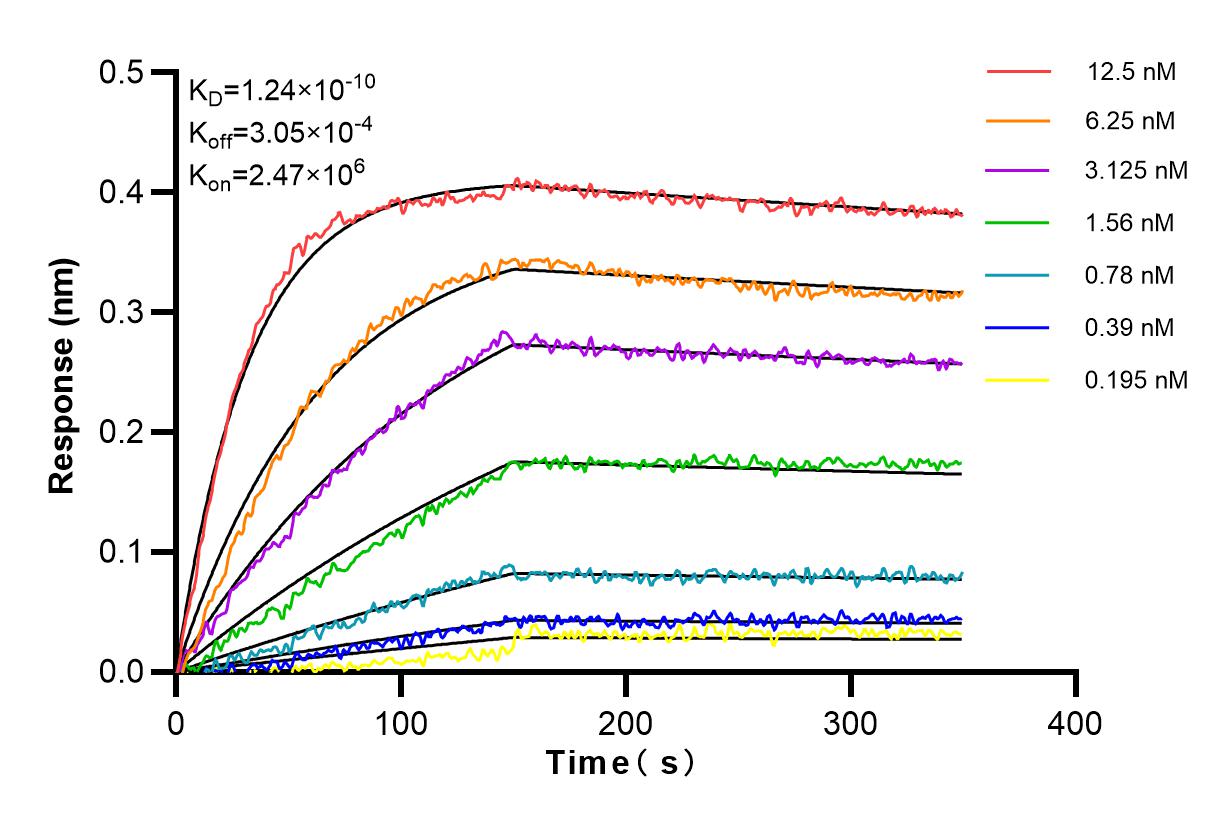Tested Applications
| Positive WB detected in | HeLa cells, HAP1 cells, HL-60 cells, THP-1 cells, MCF-7 cells, NK-92 cells |
| Positive IF/ICC detected in | A431 cells |
| Positive FC (Intra) detected in | A431 cells |
Recommended dilution
| Application | Dilution |
|---|---|
| Western Blot (WB) | WB : 1:1000-1:4000 |
| Immunofluorescence (IF)/ICC | IF/ICC : 1:50-1:500 |
| Flow Cytometry (FC) (INTRA) | FC (INTRA) : 0.25 ug per 10^6 cells in a 100 µl suspension |
| It is recommended that this reagent should be titrated in each testing system to obtain optimal results. | |
| Sample-dependent, Check data in validation data gallery. | |
Product Information
82869-1-RR targets cGAS in WB, IF/ICC, ELISA applications and shows reactivity with human samples.
| Tested Reactivity | human |
| Host / Isotype | Rabbit / IgG |
| Class | Recombinant |
| Type | Antibody |
| Immunogen | cGAS fusion protein Ag23455 Predict reactive species |
| Full Name | chromosome 6 open reading frame 150 |
| Calculated Molecular Weight | 496 aa, 54 kDa |
| Observed Molecular Weight | 62 kDa |
| GenBank Accession Number | BC113608 |
| Gene Symbol | cGAS |
| Gene ID (NCBI) | 115004 |
| RRID | AB_3670589 |
| Conjugate | Unconjugated |
| Form | Liquid |
| Purification Method | Protein A purification |
| UNIPROT ID | Q8N884 |
| Storage Buffer | PBS with 0.02% sodium azide and 50% glycerol, pH 7.3. |
| Storage Conditions | Store at -20°C. Stable for one year after shipment. Aliquoting is unnecessary for -20oC storage. 20ul sizes contain 0.1% BSA. |
Background Information
cGAS (Cyclic GMP-AMP synthase), also known as C6orf150 or h-cGAS, is a 522 aa protein. cGAS mediates innate immune responses against invading pathogens, or against self-dsDNA, which causes autoimmune disorders. The cGAS sensor not only recognizes cytosolic dsDNA but also synthesizes the second messenger cGAMP from ATP and GTP, which then binds to and activates STING. STING undergoes conformational changes and translocation from the endoplasmic reticulum to the Golgi apparatus to encounter TBK1 and IRF3, eventually triggering the production of type I IFNs.
Protocols
| Product Specific Protocols | |
|---|---|
| WB protocol for cGAS antibody 82869-1-RR | Download protocol |
| IF protocol for cGAS antibody 82869-1-RR | Download protocol |
| FC protocol for cGAS antibody 82869-1-RR | Download protocol |
| Standard Protocols | |
|---|---|
| Click here to view our Standard Protocols |
